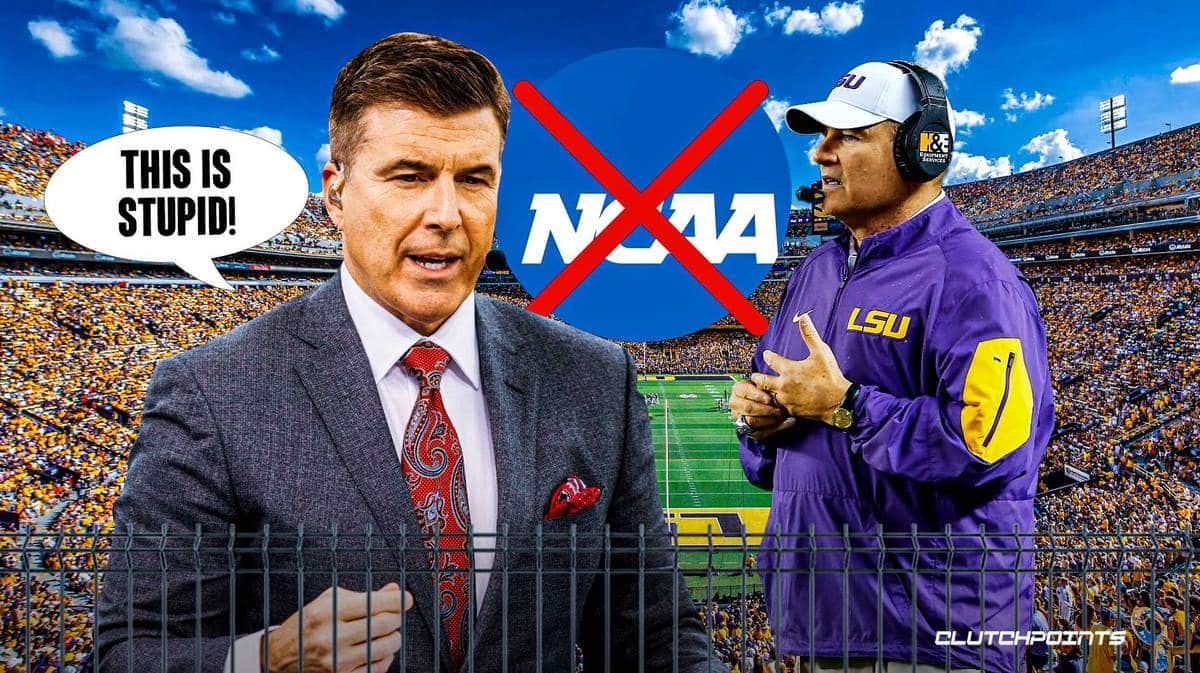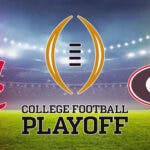The NCAA's rules on vacating wins have once again come into the spotlight, and this time it has left former LSU football coach Les Miles on the outside looking in for the College Football Hall of Fame. The decision to vacate 37 wins from Miles record from 2012 to 2015 due to self-imposed penalties for recruiting violations has left many questioning the NCAA once again. ESPN College GameDay host Rece Davis has been particularly vocal about the issue, arguing that it does nothing but tarnish the record books and deny deserving individuals their rightful place in history.
Davis's frustration with the NCAA's vacating victories policy is understandable. He points out the absurdity of striking out games played over a decade ago, suggesting that it does little to deter future violations or rectify the situation. And he's right. The NCAA's ongoing struggle to find a balance between justly penalizing past offenses and avoiding unjust consequences for the present and future has been an inherent problem for quite some time.
“Vacating victories is the dumbest, most ineffectual, punishment in the history of anything especially when you do so to games that were played 11 years ago,” Davis said on ESPN's College GameDay podcast. “That is beyond stupid, and all you do is mess up the record books for the fans who already saw the games. They know who won the games.”
As Davis pointed out, everyone that witnessed those LSU football games already knows the outcome and the teams that emerged victorious. Erasing those wins from the record books achieves nothing more than altering historical statistics and denying everyone from players to coaches to even fans of their past successes.
The NCAA was intentional in their actions against LSU, Les Miles
Prior to the vacated victories, Miles had a winning percentage of .665 with a record of 144-73. However, this percentage dropped to .597 (108-73) after the penalty was applied. As a result, Miles now falls just shy of the College Football Hall of Fame's criteria of the minimum .600 winning percentage with at least 100 games. It's worth noting that although it wouldn't have helped his winning percentage, the NCAA didn't vacate Miles' losses that occurred during that time at LSU.
Despite Miles having to contend with sexual harassment accusations at both LSU and Kansas that could have potentially hindered his hall of fame credentials, the actions undertaken by the NCAA remain undeniably questionable, casting a shadow on their own integrity. The timing of the vacated wins, along with not subtracting the losses from those seasons, raises suspicions about their motives. If anything, the NCAA's actions seem more like a way to distance themselves from Miles and the negative publicity surrounding him rather than any sort of meaningful punishment for his past violations.
The NCAA has done nothing more than attempt to manipulate history with their actions, as they have done so often in the past with the likes of others. Their system does more harm than good, and by rescinding trophies, taking down banners and pretending games didn't happen, it only serves to create confusion — it doesn't truly address the underlying issues. The NCAA, in its current state, lacks any real sense of creating effective deterrents for rule-breaking and instead only produces calculated retaliations. Miles and the LSU football program are just the latest example of that. There will assuredly be more in the future.




